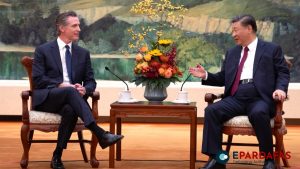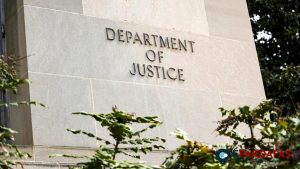
China’s Expanding Repression in the U.S. a Growing Threat, U.S. Official Warns

The Chinese Communist regime is extending its reach into the United States, posing a significant threat to American citizens and U.S. national security, a State Department official has cautioned. At an event hosted by the International Republican Institute on October 9, Dafna Rand, the newly confirmed Assistant Secretary of State for Democracy, Human Rights, and Labor, emphasized that China’s efforts to suppress dissent are now targeting individuals within the U.S.
Rand highlighted that China’s transnational repression is becoming a growing problem, stating, “The PRC has pioneered—and others have followed—a practice of transnational repression. Not only do they go after dissidents and political oppositionists and civil society and journalists within the PRC, but they are now emboldened to target dissidents and exiles abroad, including in the U.S.”
She added that this practice is “extremely dangerous to the American taxpayer,” and urged vigilance against this growing threat.
China’s Tactics of Repression
The Chinese Communist Party (CCP) has long been known for using a variety of tactics—both physical and digital—to repress dissidents. According to an April report by the State Department, these methods include threats, intimidation, coercion by proxy, espionage, and unexplained disappearances.
Rand’s comments have garnered support from Washington-based advocacy groups, including the Hong Kong Democracy Council (HKDC), which called for more decisive action from the U.S. government. The group commended Rand’s remarks, but stressed that “effective action must follow the rhetoric more consistently.”
Recent Incidents of Repression
HKDC pointed to a specific example of CCP transnational repression during Chinese leader Xi Jinping’s visit to San Francisco in November 2022, where peaceful protesters were reportedly attacked. Despite the presence of U.S. officials, including President Joe Biden and Commerce Secretary Gina Raimondo, HKDC claims the U.S. government has yet to respond effectively to these incidents. A report by HKDC and Students for a Free Tibet (SFT) identified 12 individuals connected to CCP-affiliated groups who participated in the attacks, which occurred in broad daylight.
The report urged the U.S. government to take immediate steps, including passing legislation to combat transnational repression and initiating investigations into China’s united front groups by the Department of Justice.
Legislative Action: SHIELD Against CCP Act
In response to mounting concerns, the House Homeland Security Committee advanced the bipartisan SHIELD Against CCP Act (H.R. 9668) in late September. The bill, co-led by Rep. Tom Suozzi (D-N.Y.) and Rep. Dale Strong (R-Ala.), is expected to pass after the November elections. It aims to establish a working group within the Department of Homeland Security (DHS) to identify and counter threats posed by the CCP to U.S. national security.
Rep. Suozzi emphasized the severity of the issue, stating, “The threats to our homeland from the Chinese Communist Party should deeply concern every American. These threats should not be tolerated and cannot go unchecked.”
The bill mandates that DHS address threats such as malign influence operations, transnational repression, and espionage targeting U.S. persons and infrastructure.
International Response
Concerns over China’s transnational repression extend beyond the United States. On October 10, the European Parliament passed a resolution urging the Chinese regime to release arbitrarily detained Uyghurs and dissidents. It also called on EU member states to prosecute those responsible for repressing Chinese dissidents and Uyghurs on European soil.
Rushan Abbas, executive director of the Campaign for Uyghurs, praised the resolution but underscored the need for continued efforts, saying, “Our struggle is far from over. The Member States must unite to ensure accountability for the PRC’s crimes and end the suffering of the Uyghur people.”
In Japan, Human Rights Watch released a report on October 9 detailing CCP surveillance and harassment of Chinese dissidents residing in the country. The report interviewed 25 Chinese nationals who had participated in peaceful protests or activities deemed threatening to Beijing. Most reported receiving threats or having their families contacted by Chinese authorities, urging them to abandon their activism.
Teppei Kasai, Asia program officer at Human Rights Watch, called on the Japanese government to take a firm stand, stating, “The Japanese government should make clear to Beijing it won’t tolerate the long arm of China’s transnational repression in Japan.”
Conclusion
The extension of China’s repressive tactics beyond its borders represents a growing threat to democracies worldwide. While the U.S. government is aware of the issue and is beginning to take legislative steps to address it, advocacy groups stress the need for more consistent action. As China’s influence continues to spread, international collaboration and decisive governmental action will be essential to counter the CCP’s transnational repression.












Comments